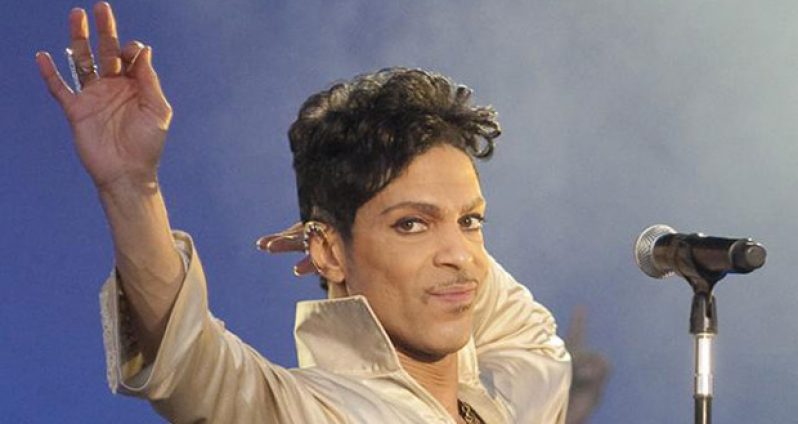PRINCE, a dizzylingly prolific multi-instrumentalist and virtuosic performer, was found dead at his home and recording studio in Minnesota early yesterday, his publicist, Yvette Noel-Schure, told The Hollywood Reporter. He was 57. Deputies are currently on the scene at Paisley Park in Chanhassen, conducting a death investigation, authorities said. No further details were immediately available, and the cause of death is not being released at this time.
The performer was born Prince Rogers Nelson on June 7, 1958, in Minneapolis, Minnesota.
He released his debut album, ‘For You’, in 1978, followed by ‘Prince’ (1979), ‘Dirty Mind’ (1980) and ‘Controversy’ (1981). All of them traded in his trademark sound: Deep synth funk grooves with provocatively sexual lyrics and heart-piercing ballads sung in pure falsetto.
His mainstream breakthrough came with back-to-back albums with his backing band, the Revolution.
In 1982, ‘1999’ launched several pop and dance-floor hits onto the charts, including “Little Red Corvette” and the title song, a post-apocalyptic party anthem.
Two years later, he released the album, a soundtrack, actually, to his movie-starring debut that would launch him into the same superstar stratosphere of other 1980s pop titans like Michael Jackson and Madonna.
The soundtrack was 1984’s ‘Purple Rain’, a searing musical backdrop to a semi-autobiographical tale of “The Kid”, a Minneapolis rocker from an abusive family. The album launched five singles, two of which, “When Doves Cry” and “Let’s Go Crazy”, went to Number One on the Billboard chart.
The title ballad reached Number Two, and has gone on to become one of the most recognisable rock anthems in history. The soundtrack itself is frequently cited on music critics’ polls as being one of the best of all time, and Prince won an Oscar for original score in 1985.
Subsequent releases grew more experimental in nature, including the psychedelic ‘Around the World in a Day’ (1985) and ‘Sign “O” the Times’ (1987), a double album recorded partly before a live audience in Paris that dispensed with the Revolution, and which is widely considered to have been produced at Prince’s creative peak. (Among the compositions on it are “The Ballad of Dorothy Parker,” “If I was Your Girlfriend,” and “I Could Never Take the Place of Your Man”.)
In between, he starred in one more film, 1986’s ‘Under the Cherry Moon’, in which he played a gigolo wooing Kristin Scott Thomas in the south of France.
The movie bombed, but produced a successful soundtrack album: ‘Parade’, which featured the hits “Kiss” and “Mountains”.
Throughout the 1990s, Prince was later backed by a large band known as The New Power Generation, and his sound moved away from synth and heavy rock guitars and into one of brassier R&B.
In 1993, he famously changed his name to that of an unpronounceable glyph that melded the symbols for male and female.
The move was one of protest against his label, Warner Bros., leading him to shave the word “Slave” into his face at one point. Between 1994 and 1996, he churned out the five remaining records due on his contract, and signed with Arista Records in 1998.
By the 2000s, the glyph was retired, and he was once again referring to himself as Prince. In 2001, Prince became a Jehovah’s Witness, and moved to Los Angeles to “better understand the music industry.” In a 2008 interview with the New Yorker, he compared his religious conversion to “a realisation … like Neo in The Matrix.”
In that same interview, he grew uncharacteristically political, saying, “So here’s how it is: You’ve got the Republicans, and basically they want to live according to this (He gestured at a Bible). But there’s the problem of interpretation, and you’ve got some churches, some people, basically doing things and saying it comes from here, but it doesn’t.
“And then on the opposite end of the spectrum, you’ve got blue; you’ve got the Democrats, and they’re, like, ‘You can do whatever you want.’ Gay marriage, whatever. But neither of them is right.” The comments drew criticism from gay rights groups and fans, many of whom felt the musician had turned his back on them since the days of Controversy, when he toyed with ideas of gender and sexuality and sang on the title song, “Am I black or white, am I straight or gay?” (yahoo.com)



.jpg)









